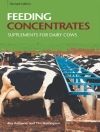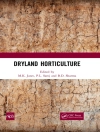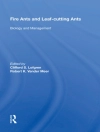Under ongoing climate change, natural and cultivated habitats of major food crops are being continuously disturbed. Such condition accelerates to impose stress effects like abiotic and biotic stressors. Drought, salinity, flood, cold, heat, heavy metals, metalloids, oxidants, irradiation etc. are important abiotic stresses; and diseases and infections caused by plant pathogens viz. fungal agents, bacteria and viruses are major biotic stresses. As a result, these harsh environments affect crop productivity and its biology in multiple complex paradigms. As stresses become the limiting factors for agricultural productivity and exert detrimental role on growth and yield of the crops, scientists and researchers are challenged to maintain global food security for a rising world population.
This two-volume work highlights the fast-moving agricultural research on crop improvement through the stress mitigation strategies, with specific focuses on crop biology and their response to climatic instabilities. Together with ‘Climate Resilient Agriculture, Vol 2: Agro-Biotechnological Advancement for Crop Production’, it covers a wide range of topics under environmental challenges, agronomy and agriculture processes, and biotechnological approaches, uniquely suitable for scientists, researchers and students working in the fields of agriculture, plant science, environmental biology and biotechnology.
Jadual kandungan
1. Global Prospects of Climate-resilient Agriculture.- 2. Climate Change and Global Crop Production.- 3. Crop Responses to Climate Change.- 4. Impact of Climate Change on Vegetable Production.- 5. Impacts of Climate Change on Fruit Physiology and Quality.- 6. Effect of Climate Change on Medicinal Plants and their Active Constituents.- 7. Climate Change and Wine Quality.- 8. Crop Responses to Drought Stress.- 9. Crop Responses to High Temperature Stress.- 10. Crop Responses to Metal Toxicity.- 11. Water Logging and Crop Productivity.- 12. Phytoremediation of Atmospheric Pollutants in the Era of Climate Change.- 13. Water Stress and Crop Productivity in the Water-limited Environment.- 14. Climate Change and Nutrient Use Efficiency of Plants.- 15. Conservation Tillage for Sustainable Agriculture.- 16. Prospect of Underutilized (minor) Crops for Climate Resilient Agriculture.- 17. Crop Protection for Sustainable Agriculture in the Era of Climate Change.- 18. Biofertilizers and Biofortification in Future Agriculture.- 19. Plant Secondary Metabolites in Stress Tolerance.- 20. Sustainable Crop Management for Drylands.- 21. Crop Improvement in Desert.- 22. Importance of Soil Management in Sustainable Agriculture.- 23. Sustainable Plant Production from the Soils Degraded with Microplastics.- 24. Biostimulants in Sustainable Agriculture, – 25. Vermicompost for Sustainable Future: Nature based Solution for Environmental Degradation, Climate Change, and Food Security.- 26. Biofertilizer: Boon for Sustainable Sugarcane Production.- 27. Beneficial Role of Microbial Diversity for Sustainable Agriculture.- 28. Crop Production and Soil Management Interventions for Increased Organic Carbon Sequestration in Soils.- 29. Microclimate Modification in Field Crops: A Way Towards Climate-Resilience.- 30. Bioremediation: A Substantive Potentialfor Clean Earth.- 31. Consolidating the Knowledge of Black Soldier Fly Larva Compost: A Resilience Response to Climatic Variations, Resource Conservation, and Food Security Challenges.- 32. Roles of Organic Acids in Plant Stress Tolerance, Food Security, and Soil Remediation.- 33. Role of Microbial Ecology to Manage Remediation and Degradation Processes in the Environment.- 34. Principles and Applications of Environmental Biotechnology for Sustainable Future.- 35. Fungal Nanobionics: Principles and Applications in Environment.- 36. Plant Parasitic Nematodes: A Silent Threat to Agricultural Output and Sustainable Approaches for their Management.- 37. Accelerating Crop Improvement through Speed Breeding.- 38. Crop Improvement of Rice (Oryza sativa L.) utilizing Wild Species and Transgenic Rice.- 39. Unlocking CRISPR/Cas-mediated Editing Potential for Designing Climate Smart Crop Plants.- 40. Biochemical, Physiological and Molecular Mechanisms of Plant Adaptation to Salinity.- 41. Managing Soil Salinity for Sustainable Agriculture.- 42. Climate Resilient Livestock Production System in Tropical and Sub-tropical Countries.
Mengenai Pengarang
Dr. Mirza Hasanuzzaman is a Professor of Agronomy at Sher-e-Bangla Agricultural University, Dhaka, Bangladesh. He completed his Bachelor of Science in Agriculture (Hons.) from Sher-e-Bangla Agricultural University, where he achieved First Class, received a Gold Medal for being first in his class, and earned a Sher-e-Bangla Agricultural University Award. He also completed a Master of Science in Agronomy from the same university, where he was once again at top of his class with a CGPA 4.0. In 2012, he received his Ph.D. with a dissertation on ‘Plant Stress Physiology and Antioxidant Metabolism’ from the United Graduate School of Agricultural Sciences, Ehime University, Japan with a Japanese Government (MEXT) Scholarship. Later, he completed his postdoctoral research in the Center of Molecular Biosciences (COMB), University of the Ryukyus, Okinawa, Japan with a ‘Japan Society for the Promotion of Science (JSPS)’ postdoctoral fellowship. Subsequently, he became an Adjunct Senior Researcher at the University of Tasmania with an Australian Government’s Endeavour Research Fellowship. Dr. Mirza Hasanuzzaman is one of the Highly Cited Researchers recognized by Clarivate Analytics and the only Bangladeshi researcher with this recognition. Prof. Hasanuzzaman published over 250 articles in the high-profile international peer-reviewed journals. He edited 33 books and written 45 book chapters on important aspects of plant physiology, plant stress tolerance, and crop production. These books have been published by world-renowned publishers such as Springer, Elsevier, CRC Press, and Wiley. According to Scopus, Prof. Hasanuzzaman’s publications have already received over 17000 citations with an h-index of 68. Prof. Hasanuzzaman’s current research foci include the crop responses to climate change and physiological and molecular mechanisms of environmental stress tolerance. He completed several research projects funded by the World Bank, FAO, the University Grants Commission of Bangladesh, the Ministry of Science and Technology (Bangladesh), and others. Prof. Hasanuzzaman supervised the dissertations of 41 Masters and 3 Ph.D. students. Dr. Hasanuzzaman is an editor and reviewer of more than 100 international journals and was a recipient of the ‘Publons Global Peer Review Award 2017, 2018 and 2019’ which is managed by Web of Science. He has presented 45 papers, abstracts, and posters at international conferences in many countries. Prof. Hasanuzzaman is a member of 50 professional societies and is the acting Treasurer Secretary of the Bangladesh JSPS Alumni Association and Publication Secretary of Bangladesh Society of Agronomy (BSA) and Weed Science Society of Bangladesh. He is a Fellow of Bangladesh Academy of Sciences, The Linnean Society of London, Royal Society of Biology, and International Society of Environmental Botanists. He received the World Academy of Science (TWAS) Young Scientist Award 2014, University Grants Commission (UGC) Gold Medal 2018, Global Network of Bangladeshi Biotechnologists (GNOBB) Award 2021 and Society for Plant Research Young Scientist Award (Agriculture)-2023.












